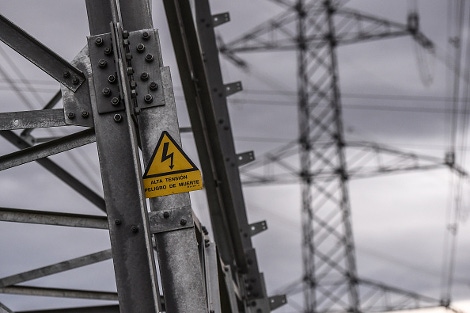Presidential Candidates Must Address Grid Security
The unprecedented, looming danger of a cyberattack
December 30, 2015


Energy-times-logo
This is an article by our sister site The Energy Times. Because grid security and reliability are matters of life and death for the data center industry, we're posting it here for our readers.
EDITOR’S NOTE: This is the first part of a two-part interview with Ted Koppel, one of the most prominent journalists in America and the author of the new book, "Lights Out." The second installment, “Power Grid Vulnerability Imperils National Security,” will be published January 7 in The Energy Times.
ENERGY TIMES: What do you think the response to your book has been, and what would you like it to be?
KOPPEL: Well I’d like it to become the object of a national conversation. We are, after all, just at the beginning. It seems like we’ve been engaged in the process for a long time already, but it’s only the beginning. The presidential campaign year – we’re almost a year away from the election. I certainly think this is an issue that deserves the attention of presidential candidates, and I’m hoping that at some point or another it will be on their agenda. It needs to be. It’s not something that can easily be handled after the fact. Tom Ridge, the first secretary of Homeland Security, put it very well when he said we tend to be a reactive society. We are not very good at pre-emptive action.
ENERGY TIMES: According to your analysis both China and Russia having the capability of attacking the grid but they are unlikely to use it given the interlocking interests they have with us. You worry more about North Korea and ISIS. Isn’t it likely that if there’s ever a major global conflict it’ll be unlike anything we’ve ever recognized before?
KOPPEL: Yes. But I’m not talking about a major global conflict. What I’m talking about is the internet in addition to its many virtues is a weapon of mass destruction. This is unlike any weapon system that has ever existed before. In the past, weapons of mass destruction have only been available to and usable by governments. A group like ISIS doesn’t have an air force and it doesn’t have a navy. It doesn’t have access to missiles. It is capable only of terrorism. But as we’ve seen, even the sort of retail terrorism in which they are engaging can be enough to absorb the attention of a nation like France or a nation like the United States. Imagine for a moment the capacity to inflict enormous damage on the United States from outside our borders by a single person using a laptop computer. It can be very difficult to track down in short order, the source of a cyber-attack. This is something that we have never experienced before. We are totally unfamiliar with it.
ENERGY TIMES: There have been incidences of physical terrorism to the grid. There are several key points in the grid that, if knocked out, would bring widespread outages. Do you think a physical assault is equally threatening, or do you see the cyberthreat as more potent?
KOPPEL: Well I see the cyberthreat as more dangerous only because it’s easier to carry out. As you know, there was an attack that took place in California where a group of shooters using AK47 rifles took out 17 large power transformers. The fact that they haven’t been found almost two years after the fact is pretty alarming. The notion that some law enforcement have - that this was a trial run rather than an actual attempt to cripple the grid out there - is equally alarming. But again, a physical attack is something that has to be done within the borders of the United States, and is something that requires probably more than one person. As for a cyberattack, I don’t want to leave you with the impression that I think this is an easy thing to do. It’s incredibly complex, otherwise I think groups like ISIS would have already done it. Thus far at least, the capability is only in the hands of a few nation states – like Russia, and China, and possibly Iran. A number of our allies and friends have the capability. But what I’m saying is the looming danger is much greater and unlike anything we’ve seen before.
This first ran at http://tdworld.com/news/presidential-candidates-must-address-grid-security
About the Author(s)
You May Also Like



.jpg?width=700&auto=webp&quality=80&disable=upscale)



